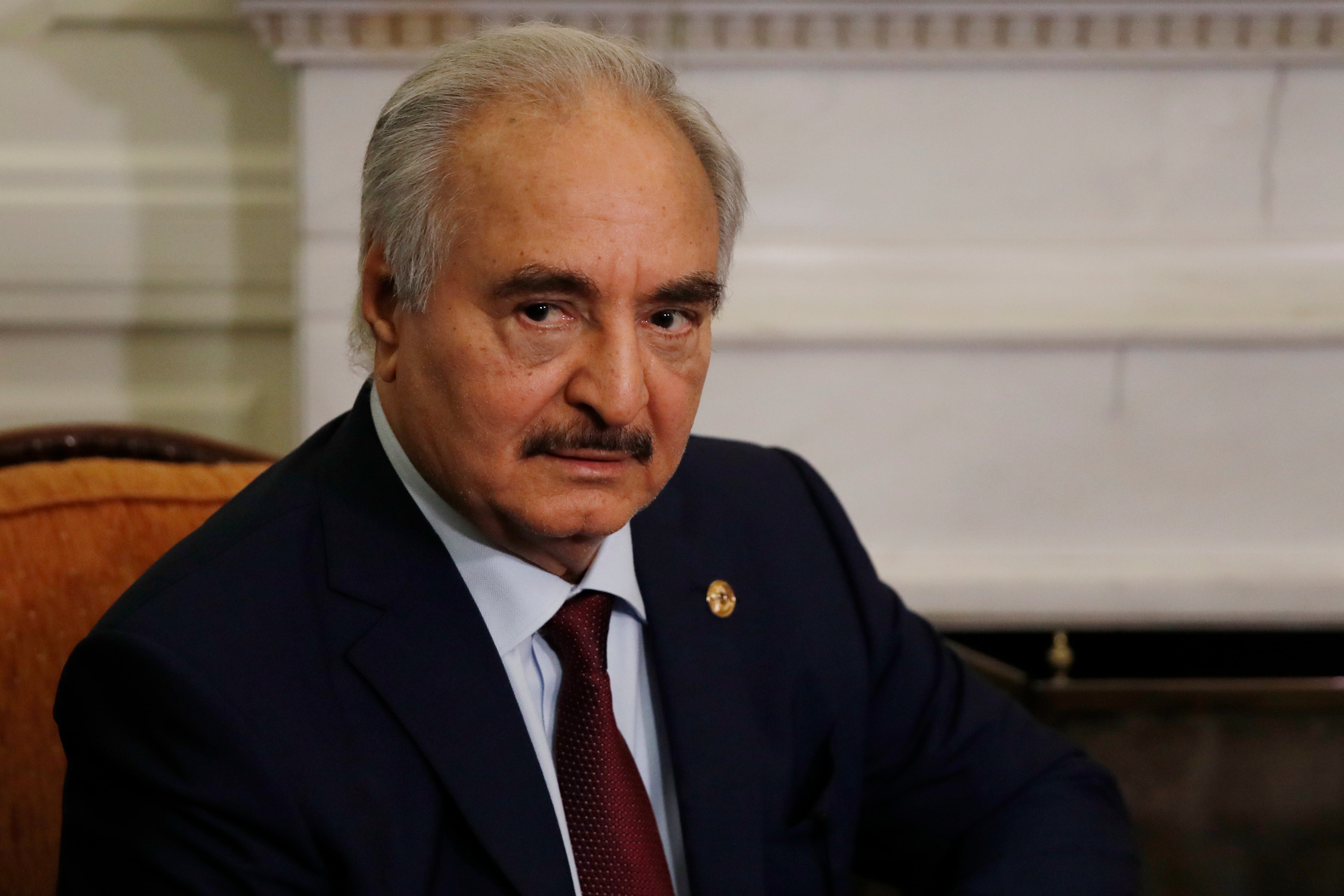Key Libya commander backs reopening of Mediterranean highway
A top Libyan military commander whose forces control the country’s eastern regions is backing the reopening of the coastal highway along the Mediterranean Sea linking Libya's long-divided eastern and western cities

Your support helps us to tell the story
From reproductive rights to climate change to Big Tech, The Independent is on the ground when the story is developing. Whether it's investigating the financials of Elon Musk's pro-Trump PAC or producing our latest documentary, 'The A Word', which shines a light on the American women fighting for reproductive rights, we know how important it is to parse out the facts from the messaging.
At such a critical moment in US history, we need reporters on the ground. Your donation allows us to keep sending journalists to speak to both sides of the story.
The Independent is trusted by Americans across the entire political spectrum. And unlike many other quality news outlets, we choose not to lock Americans out of our reporting and analysis with paywalls. We believe quality journalism should be available to everyone, paid for by those who can afford it.
Your support makes all the difference.A top Libyan military commander whose forces control the country's eastern regions on Friday endorsed the reopening of the coastal highway along the Mediterranean Sea linking Libya's long-divided east and west.
The resumption of traffic along the artery would be a significant step toward unifying Libya's warring sides.
The 1,800 kilometer (1,125 mile) -long highway links the capital of Tripoli to the west with the city of Benghazi to the east. It has been closed since April 2019 when the commander, Khalifa Hifter, launched a military offensive to capture Tripoli from the U.N.-recognized government.
Hifter’s campaign ultimately failed in June 2020, after which U.N.-sponsored peace talks brought about a cease-fire and installed an interim government that's expected to lead the country into general elections in December.
The same deal inked in October also stipulated that all foreign forces and mercenaries — which support different sides in the conflict — withdraw from Libya in three months, a provision that has not been met.
In June, Libya's interim authorities had announced the reopening of the road and held a ceremony near Tripoli where Prime Minister Abdul Hamid Dbeibah was filmed while riding a bulldozer to tow away roadblocks.
However, it remained unclear whether the road would become fully functional amid objections to the reopening by militias that control parts of it. The reopening was a long-held demand by the U.N. to enable the safe passage of civilians and goods.
Hifter’s endorsement came shortly after a U.N.-backed joint military committee representing the warring factions announced the road would reopen on Friday morning and that a subsidiary committee would be in charge of securing it.
In a televised speech, Hifter congratulated the Libyan people on “this achievement,” affirmed his full commitment to achieving peace in the oil-rich country and pledged to work toward that goal “with all sincerity and honesty."
However, he also cautioned that peace will not be possible “unless all foreign forces and mercenaries leave the Libyan territories unconditionally" and urged the international community to double its efforts to achieve this end.
Libya has been wracked by chaos since a NATO-backed uprising toppled longtime dictator Moammar Gadhafi in 2011, and split the North African country between a U.N.-supported government in Tripoli and rival authorities loyal to Hifter in the east, each backed by different armed groups and foreign governments.
In a statement, the U.N. Special Envoy to Libya Jan Kubis hailed the reopening of the road as “another step in strengthening peace, security, and stability in the country, and in the unification of its institutions.”
Kubis stressed that the next major step for Libya would be that the factions start the withdrawal of all foreign fighters. The U.N. estimated in December that there are at least 20,000 foreign fighters and mercenaries in Libya, including Syrians, Russians, Sudanese and Chadians.